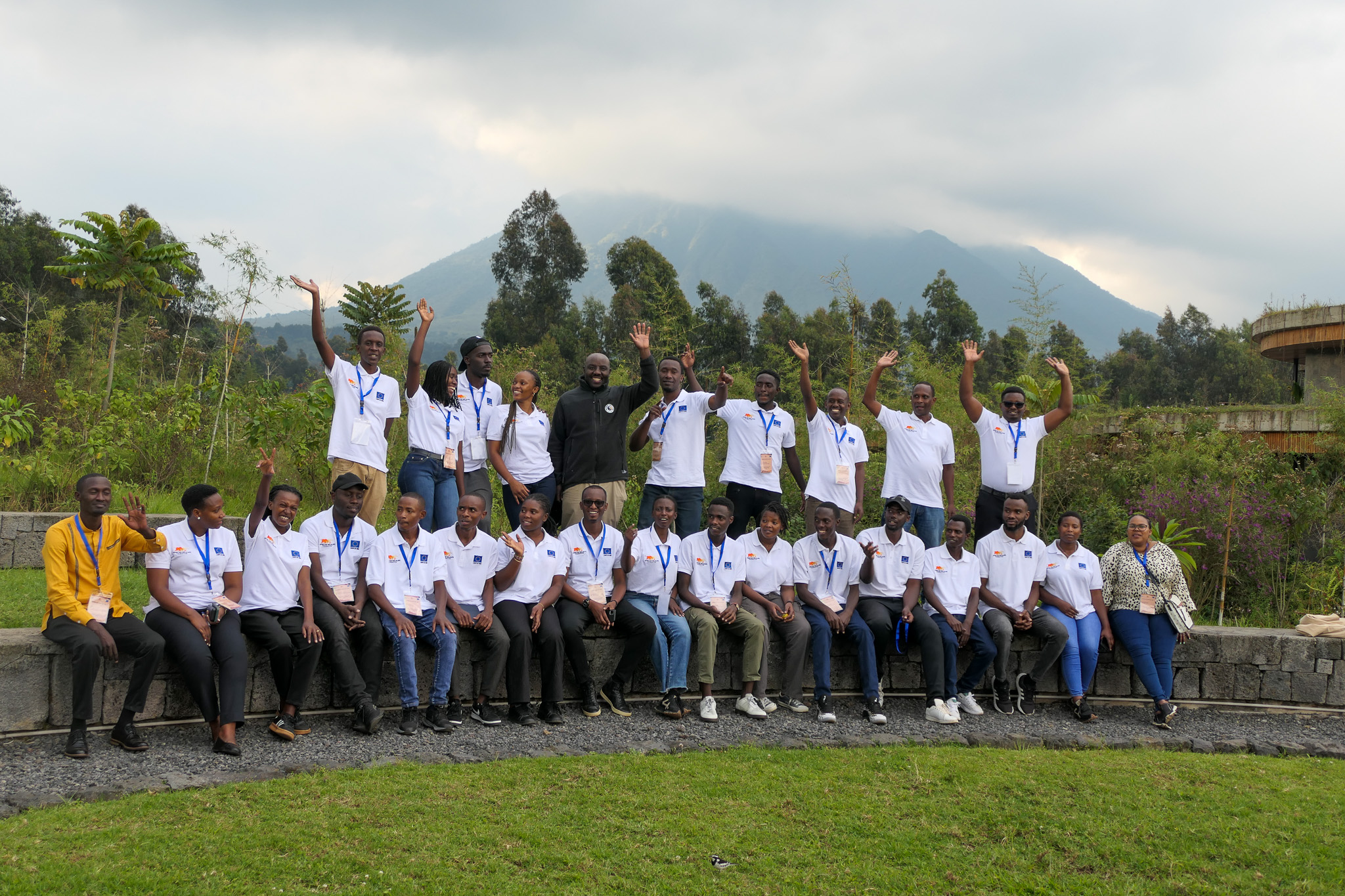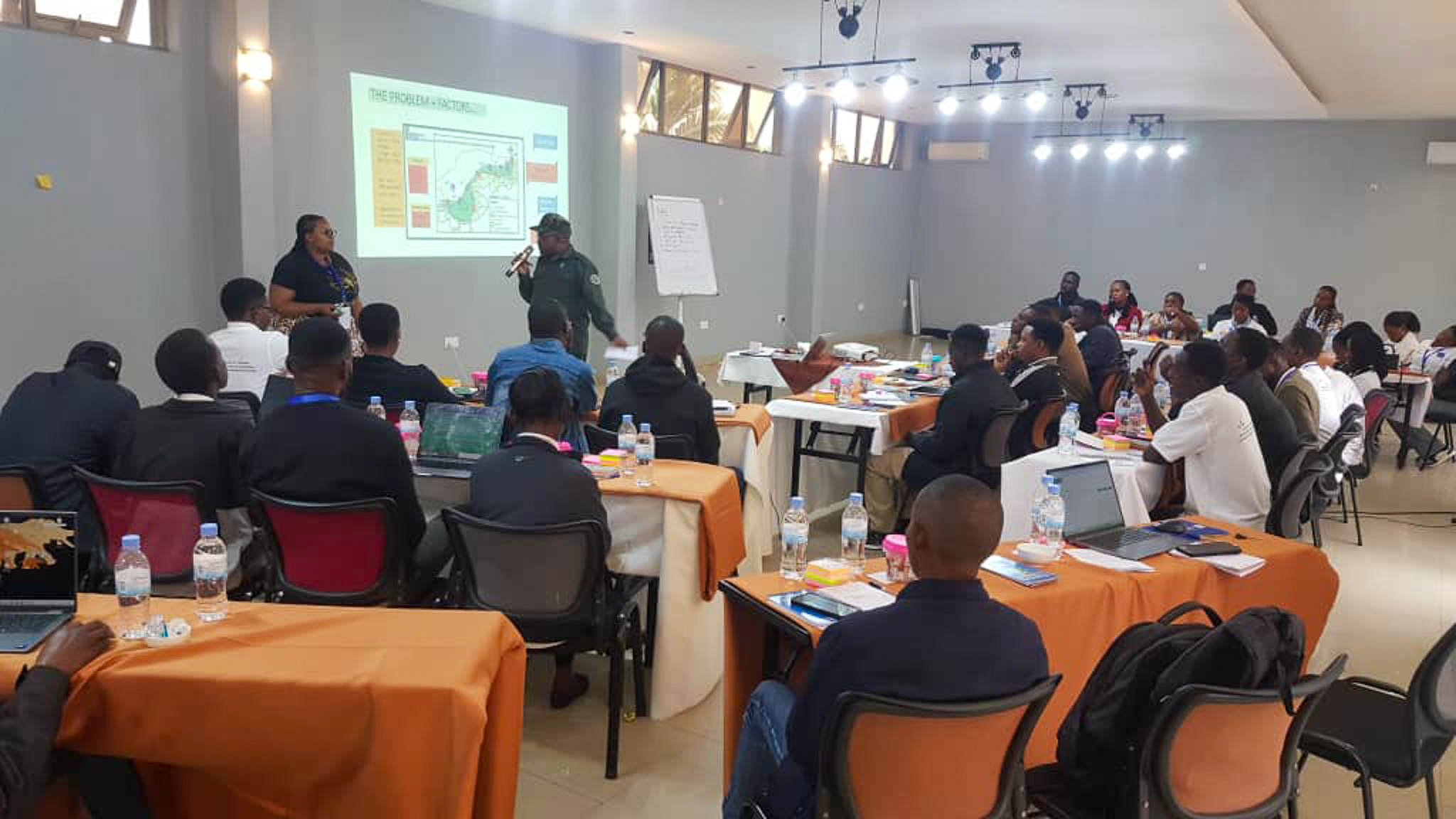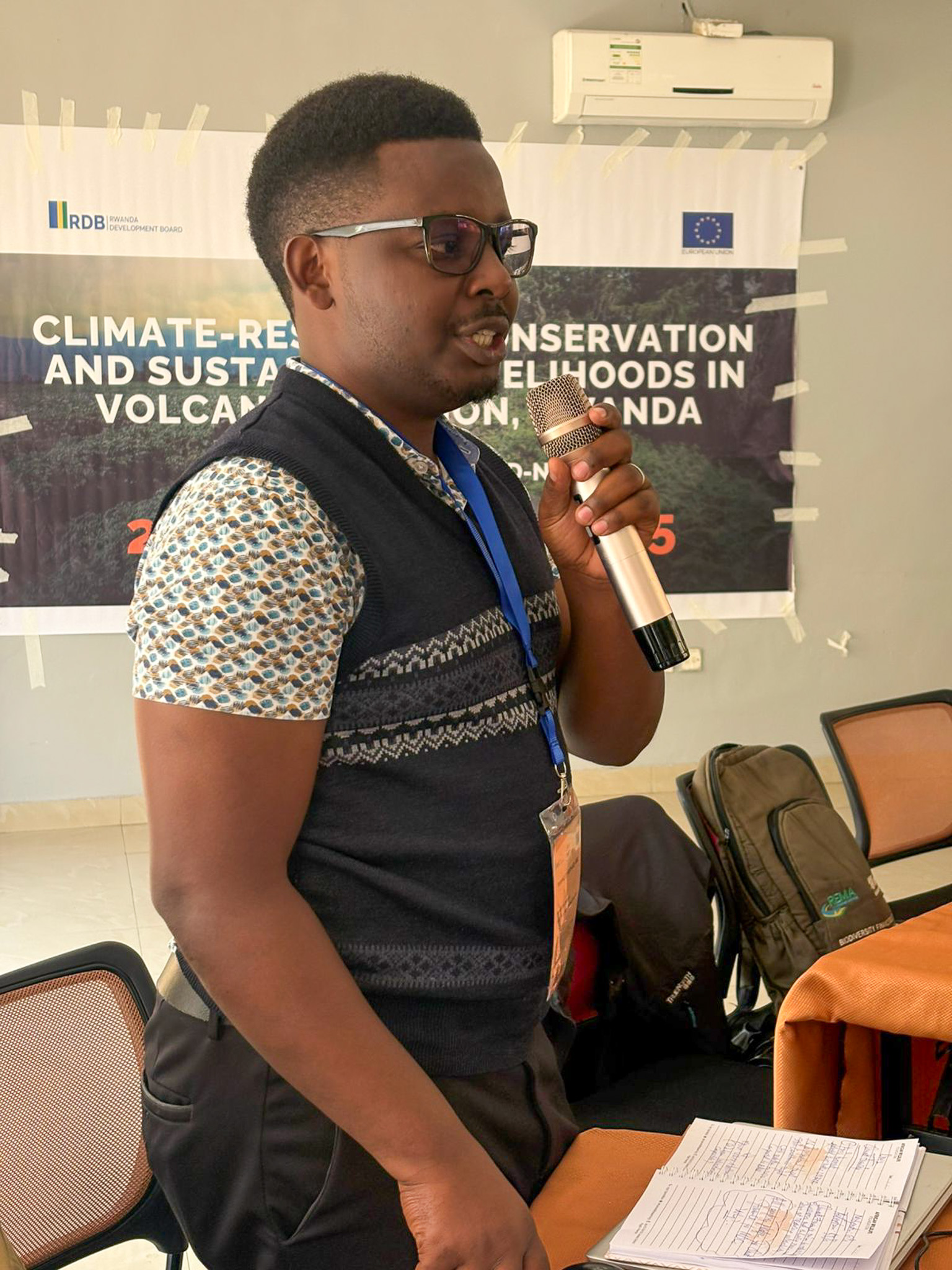Youth Lead the Way in Restoring Rwanda’s Parks and improving livelihoods

Participants from the Youth Led Organization Training in Musanze
AWF and the EU trained 30 young Rwandan leaders in biodiversity, climate adaptation, and sustainable livelihoods, empowering them to drive park restoration efforts.
Last week in Musanze, Rwanda, 30 young conservation leaders representing 5 youth-led originations came together for an intensive four-day training designed to equip them with the skills to protect nature while creating sustainable livelihoods. The workshop, funded by the European Union as part of the African Wildlife Foundation’s Volcanoes National Park Landscape Conservation and Development Program has, offered a unique blend of classroom learning, field visits, and hands-on project design.
For four days, participants explored how biodiversity conservation, climate adaptation, and nature-based solutions can work hand in hand to restore landscapes around Volcanoes National Park while delivering for livelihoods. They learnt practical approaches such as terracing, composting, and rainwater harvesting in the field, while also learning how to design community-based projects and write strong grant proposals that can attract donor funding.

One of the training sessions of the Youth Led Organization Training
The impact was immediate. “I appreciated understanding the three planetary crises — climate change, pollution, and biodiversity loss. These insights will help me communicate scientific information accurately and advocate for conservation in my work as a journalist,” said Jean Bernard Mukundente, one of the trainees. Another participant, Donath Nemeye, reflected, “The workshop helped me see the business opportunities around eco-friendly agribusiness. I look forward to becoming both an ambassador for conservation and a climate change adaptation agent.”
By the end of the week, the energy in the room was clear — this was not just a training, but the start of a youth-led movement. With their new skills, each participant will now design projects that tackle environmental challenges in their communities, putting into practice the lessons from Musanze. Through this project, all 5 youth organizations will be technically and financially supported to implement the project they design within the next two years. As one participant summed it up, “This training has given us the tools to turn awareness into action.”
Why Youth Engagement Matters
Engaging Rwanda’s youth in conservation could not be more urgent. Volcanoes National Park is home to one of the last two remaining populations of mountain gorillas in the world, and over the last four decades, Rwanda has achieved one of the most remarkable conservation success stories — bringing gorillas back from the brink of extinction. Yet with success comes new challenges. The park is running out of space to support the growing gorilla population, which increases human–wildlife conflict and pressures already fragile ecosystems.
At the same time, the communities surrounding the park face their own challenges: over 60% of households live below the poverty line, largely dependent on subsistence farming. Climate change compounds these pressures, with shifting rainfall patterns leading to soil erosion, crop failures, and resource conflicts.

One of the participants during the training.
This is why AWF’s work in the Volcanoes landscape is centered on linking conservation with development. The $300 million Volcanoes National Park Landscape Conservation and Development Program (2018–2038) is an ambitious national effort to expand gorilla habitat, restore degraded areas, and invest in nature-based economic development that benefits people. The program has already piloted successful models: training 300 farmers, launching 90 local businesses with microfinance support, and restoring over 27 hectares of forest.
Young people are central to carrying this vision forward. By equipping them with technical knowledge, entrepreneurial skills, and platforms to engage in policy and project design, AWF and its partners are ensuring that the next generation has both the tools and the agency to shape a sustainable future for Rwanda’s parks and its people.
Building a Future Where People and Wildlife Thrive
The youth training in Musanze is part of a broader journey. Over the coming months, participants will continue with advanced modules on project management, financial accountability, monitoring and evaluation, and strategic communications. Each youth-led organization will also be tasked with developing a €7,000 grant proposal, ensuring that their ideas move from theory into action.
These initiatives align closely with Rwanda’s Conservation and Development Master Plan (2024–2030), which prioritizes community involvement, climate resilience, and the expansion of protected areas. By bringing youth into the heart of this process, the program creates a pipeline of leaders who will carry Rwanda’s conservation legacy forward.
As an EU representative noted at the closing session, “Young people are the future of conservation in Rwanda. By empowering them with knowledge, skills, and opportunities, we ensure that landscapes like Volcanoes National Park remain thriving ecosystems that support both people and wildlife.”
The AWF Rwanda Park Restoration Program continues to demonstrate how empowering young people can drive long-term conservation success. By placing youth at the center, the future of Rwanda’s parks is already being reshaped — one idea, one project, and one leader at a time.